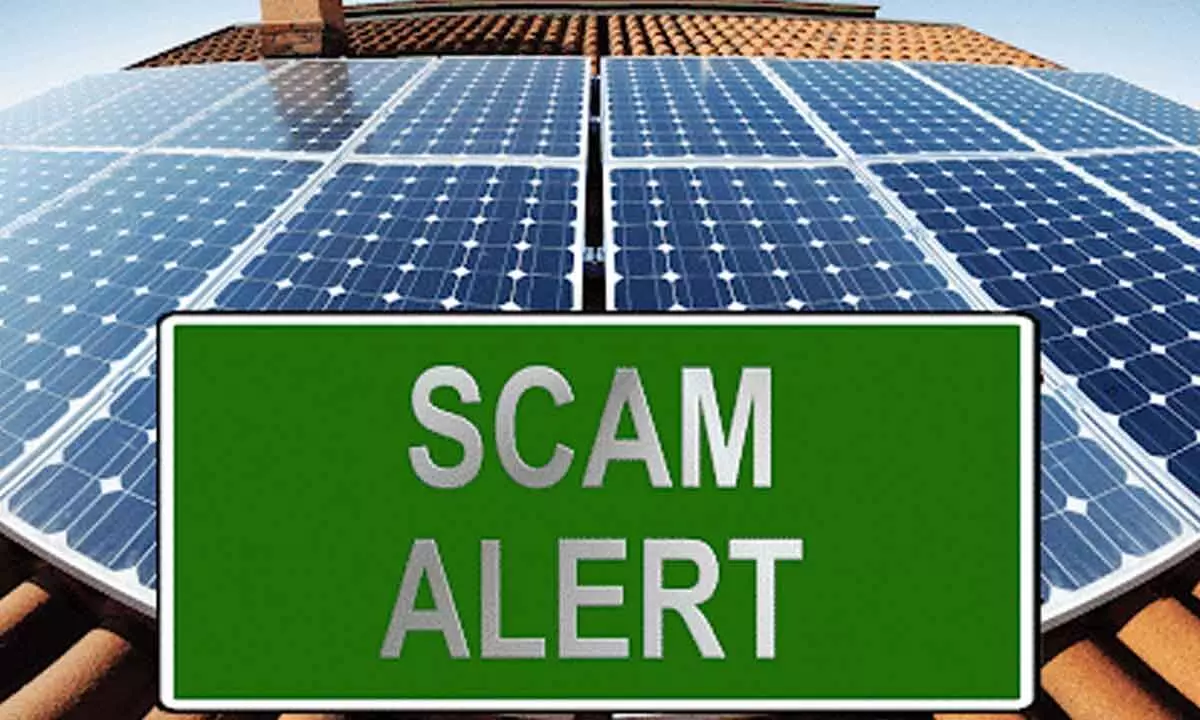Rooftop solar scheme facing teething problems
Telangana Solar Energy Association (TSEA) alerts consumers about unregistered vendors, who’re luring with high discounts on solar systems; Advises to purchase from vendors listed by Ministry for New and Renewable Energy
image for illustrative purpose

Hyderabad: The PM Surya Ghar Muft Bijli Yojana, launched by the Government of India on February 13, 2024, aims at installing rooftop solar plants in one crore households. For the successful implementation of the scheme, the Ministry for New and Renewable Energy (MNRE), through the local discoms, has listed trustworthy vendors on its National Portal for Rooftop Solar. However, business opportunists are luring innocent customers, unaware about the process, with higher per cent of discounts on the purchase of solar systems.
The average cost of a branded 1kW solar plant is around Rs 70,000. According to the national portal, the subsidy announced by the Centre for residential households installing up to 2kW solar plant is Rs30,000 per kW. For additional capacity of up to 3kW, the subsidy is Rs18,000 per kW and total subsidy for systems larger than 3kW is capped at Rs78,000.
Speaking to Bizz Buzz, B Ashok Kumar Goud, president, Telangana Solar Energy Association (TSEA), said: “New companies without any office presence are announcing around 90 per cent discount on solar plant installation. One person had also circulated printed ads. Customers don’t know that they have to get it installed through empanelled vendors for being eligible for the subsidy. My request to the MNRE is to create awareness against such fraudsters.”
Goud informed that empanelled vendors are liable to pay a fine for faulty installation. The fine is paid by the local discom on behalf of listed vendors who have already paid a total security deposit of Rs5 lakh to the two discoms in Telangana.
“Our money is with the local discoms. Don’t go with unauthorised vendors who claim to install for cheaper amount. That is highly impossible as the price of non-branded solar systems also start off from Rs 60,000. In rural or urban, awareness can be created by furnishing these details behind the electricity bill,” he urged.
For an average monthly electricity consumption of 150 units and below, the suitable rooftop solar plant capacity to be installed is 1-2kW, for 150 to 300 units, it is 2 -3 kW, and above 300 units is a plant of above 3kW capacity. In a span of 30 days, the two Telangana discoms TSSPDCL and TSNPDCL. have received 3,000 applications. For gated communities, the subsidy has been increased from Rs7,000 per kW to Rs18,000 per kW, the limit being up to 500kW. For residential households, the subsidy has been increased from Rs18,000 per kW to Rs30,000. However, for 5kW to 10kW, Goud informed that the subsidy has been cut down from Rs90,000 to Rs78,000.
Listing out the other challenges of the scheme, under which the phase-II of Grid Connected Rooftop Solar programme has been subsumed, Goud said, “for customers to earn income by selling the extra units of solar power generated, they have to generate extra power. To generate extra power, a solar system of higher capacity has to be installed, for which a request for load enhancement has to be raised. Getting an approval in itself is taking time.”
He went on to clarify that, “as per my knowledge, there is no requirement for feasibility report for installation of up to 3kW. But in Telangana, it hasn’t been implemented. Also, the concerned authorities should mull on the fees they are collecting from customers, which is, Rs2,500 plus 18 per cent GST for the report, and Rs1,750 to TSREDCO for in-principle sanction.”

